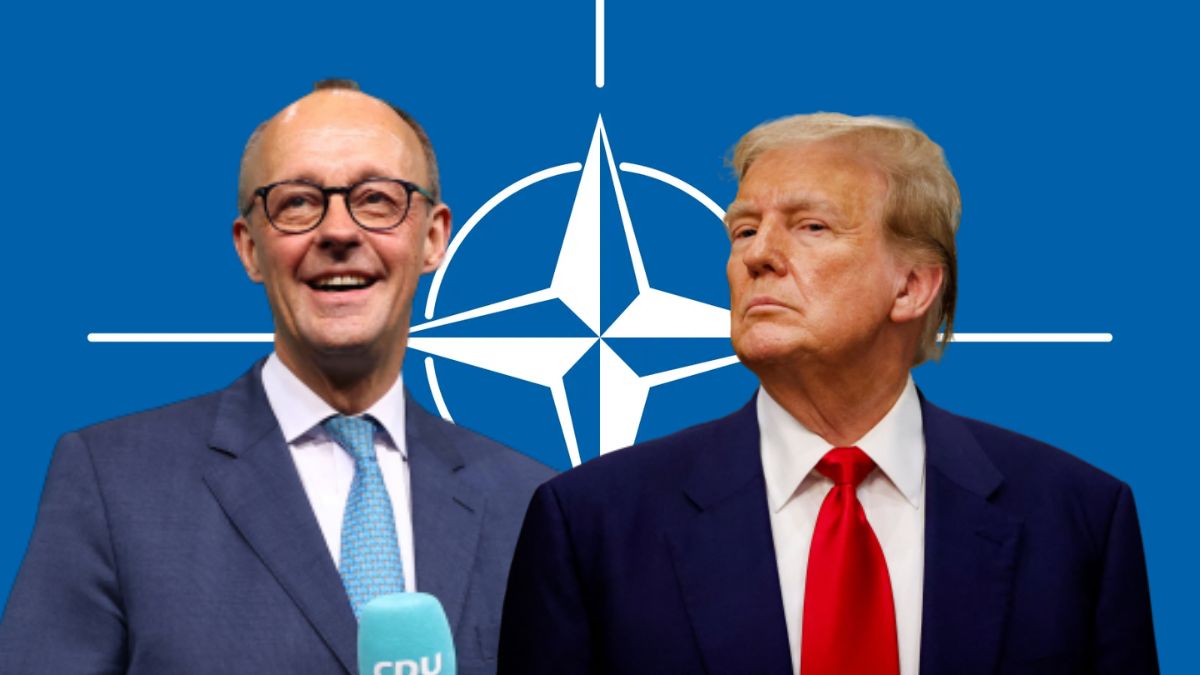German Chancellor Friedrich Merz will meet Donald Trump in the Oval Office on Thursday, hoping to avoid one of the US president’s infamous ambushes amid discord over Ukraine and tariffs.
Trump’s well-known disdain for “bad, very bad” Germans puts Friedrich Merz in a politically sensitive spotlight.
According to a Politico report, Merz is expected to face tough questions on camera over his February election night remarks, where he called for Europe to “achieve independence from the USA” and described the Trump administration as “largely indifferent to the fate of Europe.”
Merz will also have to carefully navigate a range of fraught issues, including German car exports, Berlin’s commitment to Nato and support for Ukraine, and — perhaps most delicately — the Trump administration’s perceived alignment with the far-right, anti-immigration Alternative for Germany (AfD), now the country’s second-largest political party.
However, Merz may not need to lose sleep just yet.
Early signs suggest he and Trump, both wealthy businessmen and avid golfers, could get along well. The new chancellor, a committed transatlanticist, has pledged a sharp shift in German policy, with major increases in defence spending and tougher migration controls—key Trump priorities, reported Politico.
The visit also aligns with EU efforts to broker a peace deal on car exports, aiming to ease tensions in the brewing US-EU trade dispute.
Adding to the positive tone, Trump has invited Merz to stay at Blair House, the official White House guest residence, a gesture seen by German officials as reassuring.
Impact Shorts
More ShortsAccording to Politico, a White House official, speaking anonymously, downplayed any drama, calling it “just another foreign leader visit.”
Merz, meanwhile, has sought to build rapport, even inviting Trump to visit his ancestral village in Germany, the birthplace of Trump’s grandfather, Friedrich Trump.
The German chancellor seems to think the calls between him and Trump went well.
“My first conversation with him was personally good, there are a few people we know in common … and I congratulated him on the American pope … and then we talked a bit about Chicago, and because the pope comes from there. I have often been there professionally,” Merz was quoted as saying recently.
Impersonating Trump, he added, “‘Oh, where do you know Chicago from? This is a great city! Chicago is a really great city.’ That was kind of the tone of the conversation.”
But the German delegation knows how quickly things can go off-script — like Trump’s false “genocide” claims made during South African President Cyril Ramaphosa May visit, or earlier attacks by Trump and Vice President JD Vance on Ukraine’s President Zelenskyy.
Vance’s February speech at the Munich Security Conference, just before Merz’s election win, hinted at the risks. In his speech, Vance attacked mainstream European leaders for “running in fear” of their own voters, singling out Germany’s “firewall” around the rising AfD to keep centrist politicians from forming coalitions with the ostracised party.
Secretary of State Marco Rubio added fuel, accusing Germany’s intelligence service of “tyranny in disguise” for labeling AfD extremist.
Vance’s remarks clearly rattled Merz, who responded on election night by questioning whether Naro could survive in its current form, citing concerns over the US role. Just days earlier, he had called for talks to place Germany under the British and French nuclear umbrella.
Despite the rocky start, Berlin-Washington ties have since improved significantly.
To win over Trump, who once branded Germany “delinquent” on defence and threatened to withdraw 12,000 US troops, Merz’s government has pledged to build Europe’s “strongest conventional army.”
It has also signaled a once-unthinkable shift: a gradual move toward spending 5% of GDP on defence, up from just over 2% today.
Merz has quietly dropped talk of European “independence.”
During a May visit to Nato HQ, he said the Trump administration’s view of Europe had “obviously changed” and expressed new optimism about Nato’s future. The US, he added, remains “indispensable for Europe’s security.”
Washington appears to be responding. At a recent Singapore conference, Defense Secretary Pete Hegseth praised Germany as a model—joking, “it’s hard to believe … I’m saying this.”
On the AfD front, Merz can also take some comfort: Elon Musk, the party’s loudest high-profile supporter, is no longer in government.
Meanwhile, ahead of the meeting, Merz told reporters in Washington that if Trump brings up German domestic politics “I will state my opinion very clearly if necessary.”
Despite the tensions, Merz said he was “looking forward” to his first face-to-face meeting with Trump.
“Our alliance with America was, is, and remains of paramount importance for the security, freedom, and prosperity of Europe,” he posted on X.
The German chancellor is believed to have studied videos of previous Oval Office ambushes and learned how to stay calm and let Trump talk.
With inputs from agencies


)

)
)
)
)
)
)
)
)



